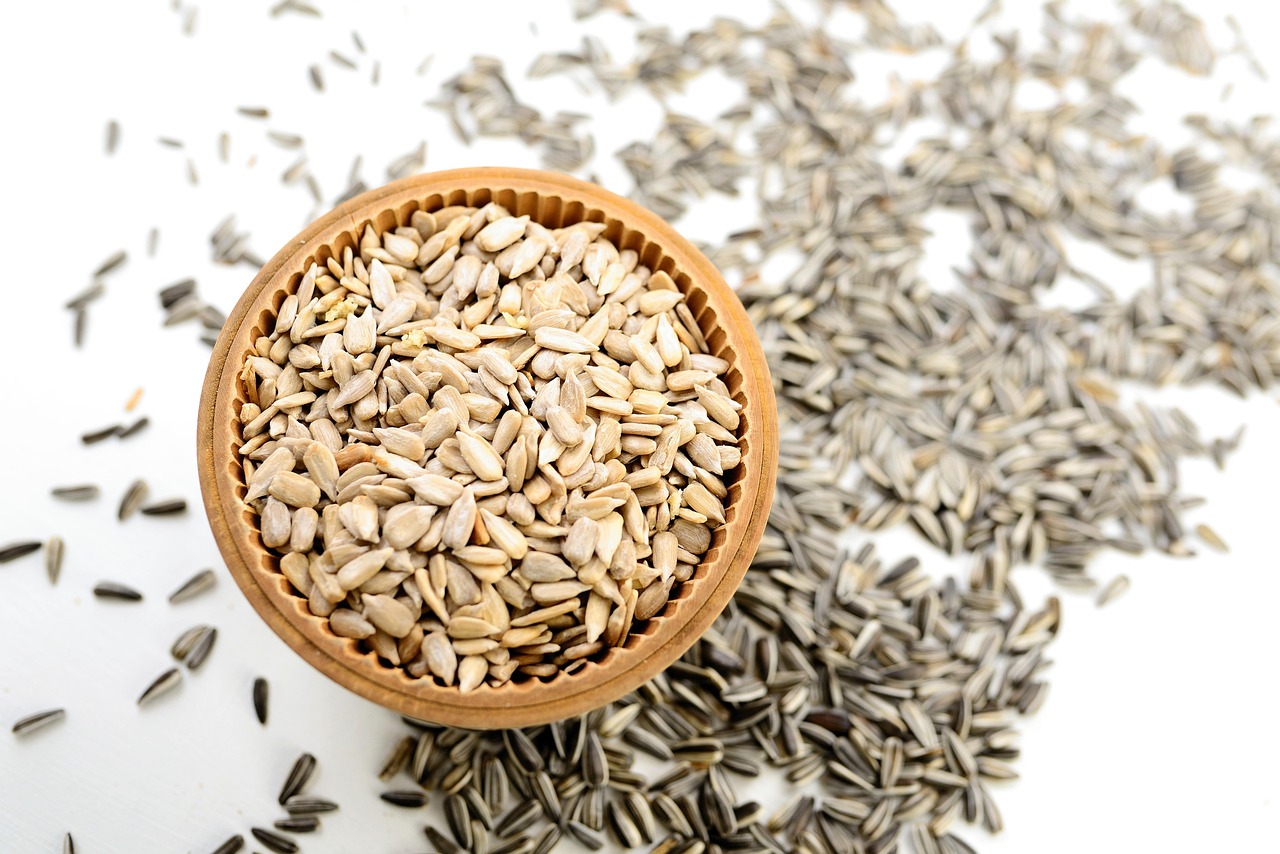This article provides an in-depth examination of GABA (Gamma-Aminobutyric Acid), a crucial neurotransmitter that significantly influences mental health by managing anxiety and enhancing sleep quality. Understanding GABA’s mechanisms, benefits, and implications can lead to better mental health strategies for those affected by anxiety disorders and sleep disturbances.
What is GABA?
GABA is a neurotransmitter that primarily functions as an inhibitory signal in the brain. It plays a vital role in regulating neuronal excitability, which is essential for fostering a sense of relaxation and calmness. This inhibitory action is particularly important in the context of anxiety management and sleep improvement.
How GABA Affects Anxiety
Numerous studies have shown that GABA’s calming effects can significantly alleviate anxiety levels. The relationship between GABA and various anxiety disorders suggests that supplementation with GABA may provide relief for individuals struggling with these conditions.
Mechanisms of GABA in the Brain
Understanding GABA’s operation within the central nervous system clarifies its role in anxiety management. GABA influences mood and stress responses through specific pathways, which are crucial for maintaining emotional balance.
The Inhibitory Action of GABA
The primary function of GABA is to inhibit neural activity, effectively counteracting feelings of anxiety. This inhibition is vital for maintaining mental equilibrium and preventing overwhelming stress responses.
GABA Receptors and Their Role
GABA binds to specific receptors in the brain, leading to various physiological effects. Different types of GABA receptors play distinct roles in anxiety treatment, making them a focal point of research in mental health.
GABA and Sleep Quality
The role of GABA in promoting sleep is well-documented. It facilitates the onset of sleep and enhances overall sleep quality, making it a critical component for individuals suffering from insomnia.
Benefits of GABA Supplementation
Many individuals seek out GABA supplements for their potential to reduce anxiety and improve sleep. Research supports the efficacy of GABA supplementation, highlighting its benefits for mental health.
Natural Sources of GABA
In addition to supplements, certain foods naturally contain GABA. Incorporating these foods into your diet can help boost GABA levels, promoting relaxation and better sleep.
Risks and Side Effects of GABA
While GABA supplementation can be beneficial, it is crucial to recognize potential risks and side effects. Common concerns should be addressed for those considering GABA as a treatment option.
Conclusion: The Importance of GABA in Mental Health
In conclusion, GABA plays a pivotal role in managing anxiety and supporting sleep. A deeper understanding of its functions can lead to improved mental health strategies and enhanced well-being for many individuals.

What is GABA?
Exploring the Role of GABA in Anxiety and Sleep Support
This article delves into the function of GABA (Gamma-Aminobutyric Acid) in managing anxiety and enhancing sleep quality, highlighting its mechanisms, benefits, and implications for mental health.
GABA is a neurotransmitter that plays a vital role in the brain by inhibiting excitatory signals. This inhibition is essential for maintaining a balance in neuronal excitability, which is crucial for promoting a sense of relaxation. When GABA levels are adequate, individuals often experience reduced feelings of anxiety and improved sleep quality.
How GABA Affects Anxiety
Research indicates that GABA’s calming effects can significantly reduce anxiety levels. Studies have shown that individuals with anxiety disorders often have lower levels of GABA. Supplementation with GABA may offer relief for those affected, helping to stabilize mood and reduce stress.
Mechanisms of GABA in the Brain
Understanding how GABA operates within the central nervous system clarifies its role in anxiety management. GABA interacts with specific receptors in the brain, leading to various physiological effects that help regulate mood and stress responses.
The Inhibitory Action of GABA
The primary function of GABA is to inhibit neural activity. This inhibitory action helps counteract feelings of anxiety, making it essential for maintaining mental balance and emotional stability.
GABA Receptors and Their Role
GABA binds to specific receptors in the brain, such as GABAA and GABAB. These receptors play a crucial role in mediating the neurotransmitter’s effects, influencing not only anxiety but also other physiological processes.
GABA and Sleep Quality
GABA’s role in promoting sleep is well-documented. It facilitates the onset of sleep and improves overall sleep quality, making it vital for those struggling with insomnia or other sleep disorders.
Benefits of GABA Supplementation
Many individuals turn to GABA supplements for their potential anxiety-reducing and sleep-enhancing effects. Evidence suggests that GABA supplementation can be beneficial in managing stress and improving sleep patterns.
Natural Sources of GABA
- Fermented foods (e.g., kimchi, yogurt)
- Green tea
- Whole grains
- Beans and lentils
Incorporating these foods into your diet can help boost GABA levels naturally.
Risks and Side Effects of GABA
While GABA supplementation can be beneficial, it is essential to recognize potential risks and side effects, such as drowsiness, headache, or digestive issues. Consulting a healthcare professional before starting supplementation is advisable.
Conclusion: The Importance of GABA in Mental Health
In conclusion, GABA plays a pivotal role in managing anxiety and supporting sleep. Understanding its functions can lead to better mental health strategies and improved well-being for many individuals.

How GABA Affects Anxiety
Research has shown that Gamma-Aminobutyric Acid (GABA) plays a critical role in the regulation of anxiety levels. As a primary inhibitory neurotransmitter in the brain, GABA functions to counterbalance the excitatory signals that can lead to heightened feelings of stress and anxiety. Understanding how GABA affects anxiety is essential for those seeking effective management strategies.
One of the key mechanisms through which GABA exerts its calming effects is by binding to specific receptors in the brain, known as GABA receptors. When activated, these receptors lead to increased neuronal inhibition, which can help to alleviate anxiety symptoms. This inhibition is crucial because it helps to create a sense of calm and relaxation, making it easier for individuals to cope with stressors.
Furthermore, studies suggest that individuals with anxiety disorders often have lower levels of GABA in their systems. This deficiency can contribute to an imbalance in neurotransmitter activity, which may exacerbate feelings of anxiety. Therefore, GABA supplementation has gained attention as a potential therapeutic approach for those struggling with anxiety.
- Supplementation Benefits: Some research indicates that taking GABA supplements may help increase GABA levels in the brain, potentially leading to reduced anxiety symptoms.
- Natural Sources: Foods rich in GABA, such as fermented products, can also support the body’s natural production of this important neurotransmitter.
- Considerations: While GABA supplementation can be beneficial, it is crucial to consult with a healthcare professional to discuss potential side effects and interactions with other medications.
In conclusion, GABA plays a vital role in managing anxiety by promoting relaxation and inhibiting excessive neural activity. Understanding its mechanisms and the potential benefits of supplementation can empower individuals to make informed choices about their mental health.
Mechanisms of GABA in the Brain
Understanding the Mechanisms of GABA in the Brain
Gamma-Aminobutyric Acid, or GABA, is a critical neurotransmitter that plays an essential role in the central nervous system. Its primary function is to inhibit neuronal excitability, which is crucial for maintaining a balanced mood and managing stress. This section delves into the intricate pathways through which GABA influences mood regulation and stress responses, shedding light on its significance in anxiety management.
GABA operates through various mechanisms that contribute to its calming effects. When GABA binds to its receptors, it triggers a series of physiological responses that help to decrease the activity of neurons. This inhibition is vital for counteracting the overstimulation that can lead to feelings of anxiety and stress. The primary types of receptors involved are GABAA and GABAB, each playing unique roles in how GABA functions within the brain.
| GABA Receptor Type | Function |
|---|---|
| GABAA | Fast inhibitory neurotransmission, primarily responsible for the immediate calming effects. |
| GABAB | Slow inhibitory neurotransmission, involved in modulating synaptic transmission and long-term effects. |
Moreover, GABA’s influence extends beyond just anxiety management. Research suggests that it plays a role in enhancing sleep quality and regulating emotional responses. By understanding how GABA interacts with various brain pathways, researchers can develop targeted therapies that leverage its calming properties, offering hope for individuals struggling with anxiety disorders.
In conclusion, GABA’s multifaceted mechanisms in the brain underscore its importance in mental health. By inhibiting excessive neural activity, GABA not only aids in anxiety management but also promotes overall emotional well-being. Continued research into GABA’s functions may pave the way for innovative treatments that can significantly improve the quality of life for those affected by anxiety and related disorders.
The Inhibitory Action of GABA
GABA, or Gamma-Aminobutyric Acid, is a critical neurotransmitter in the central nervous system that plays a pivotal role in maintaining mental balance. Its primary function is to inhibit neural activity, which is essential for counteracting feelings of anxiety. This inhibition occurs through several mechanisms that are vital for emotional regulation and overall mental health.
When GABA is released in the brain, it binds to GABA receptors, which are primarily of two types: GABAA and GABAB. The binding process leads to an influx of negatively charged ions into the neuron, making it less likely to fire and transmit signals. This hyperpolarization of neurons results in decreased excitability, effectively calming the brain’s activity. As a result, individuals may experience a reduction in anxiety symptoms, allowing for a more stable emotional state.
Furthermore, GABA’s inhibitory action is not just limited to anxiety relief; it also plays a crucial role in promoting relaxation and facilitating sleep. By reducing neuronal excitability, GABA helps to create an environment conducive to sleep, making it easier for individuals to fall and stay asleep. This dual function of GABA as both an anxiolytic and a sleep aid underscores its importance in mental health.
Maintaining optimal GABA levels is crucial for those struggling with anxiety disorders or sleep disturbances. Various factors, including diet, lifestyle, and supplementation, can influence GABA production and receptor sensitivity. Therefore, understanding the mechanisms through which GABA operates is essential for developing effective strategies to enhance mental well-being.
In conclusion, the inhibitory action of GABA is fundamental to counteracting anxiety and promoting relaxation. By comprehending how GABA functions within the brain, individuals can better appreciate its significance in maintaining mental health and stability.
GABA Receptors and Their Role
Gamma-Aminobutyric Acid (GABA) is a crucial neurotransmitter in the human brain, primarily known for its inhibitory effects on neuronal activity. It binds to specific receptors, which play a significant role in regulating various physiological processes, particularly in the context of anxiety treatment.
There are two main types of GABA receptors: GABAA and GABAB. Each type has unique properties and functions that contribute to GABA’s overall impact on mental health.
| Type of GABA Receptor | Function | Implications for Anxiety Treatment |
|---|---|---|
| GABAA | Fast inhibitory neurotransmission | Targets for anxiolytic medications |
| GABAB | Slow inhibitory effects | Potential therapeutic targets for long-term anxiety management |
GABAA receptors are primarily responsible for the rapid calming effects associated with GABA. When GABA binds to these receptors, it opens ion channels that allow chloride ions to flow into the neuron, leading to hyperpolarization and decreased neuronal excitability. This mechanism is crucial for the effectiveness of many anxiolytic medications, such as benzodiazepines, which enhance the action of GABA at these receptors.
On the other hand, GABAB receptors mediate slower, longer-lasting inhibitory effects. They are linked to various physiological processes, including muscle relaxation and pain modulation. Research suggests that targeting GABAB receptors may offer new avenues for treating anxiety disorders, particularly in patients who do not respond well to traditional therapies.
In summary, understanding the roles of different GABA receptors is essential for developing effective treatments for anxiety. By targeting these receptors, researchers aim to create therapies that provide relief while minimizing side effects, paving the way for improved mental health outcomes.
GABA and Sleep Quality
Gamma-Aminobutyric Acid (GABA) is a key neurotransmitter that plays a significant role in regulating sleep patterns. Its ability to promote relaxation and reduce neuronal excitability makes it essential for individuals struggling with sleep disorders, particularly insomnia. This section explores how GABA facilitates the onset of sleep and enhances overall sleep quality.
Research has shown that GABA levels influence sleep architecture, which encompasses the various stages of sleep. When GABA is released in the brain, it binds to specific receptors, leading to a calming effect that helps individuals transition from wakefulness to sleep. This process is crucial for achieving deep sleep, which is vital for physical and mental restoration.
Moreover, studies indicate that individuals with insomnia often exhibit lower levels of GABA. This deficiency can result in difficulties falling asleep and maintaining sleep throughout the night. By supplementing with GABA or consuming GABA-rich foods, individuals may experience improved sleep onset and quality. Foods such as fermented products, nuts, and certain teas can naturally boost GABA levels in the body.
Additionally, the calming effects of GABA are not limited to its role in sleep. It also helps mitigate stress and anxiety, which are common culprits of sleep disturbances. By addressing these underlying issues, GABA supplementation can create a more conducive environment for restful sleep.
In conclusion, GABA is a vital component in promoting healthy sleep patterns. Its ability to facilitate the onset of sleep and improve sleep quality makes it an essential consideration for anyone experiencing insomnia or sleep-related issues. Understanding the role of GABA can empower individuals to make informed choices regarding their sleep health.

Benefits of GABA Supplementation
Many individuals are increasingly turning to GABA supplements for their potential to alleviate anxiety and enhance sleep quality. GABA, or Gamma-Aminobutyric Acid, is a naturally occurring neurotransmitter that plays a vital role in calming the nervous system. This section evaluates the evidence supporting GABA supplementation and its possible benefits, shedding light on its significance for mental health.
| Benefit | Description |
|---|---|
| Anxiety Reduction | Research indicates that GABA can help lower anxiety levels by inhibiting overactive neural pathways, promoting a sense of calm. |
| Improved Sleep Quality | GABA supplementation has been shown to facilitate the onset of sleep and improve overall sleep duration, making it beneficial for those suffering from insomnia. |
| Stress Management | By enhancing relaxation, GABA may assist individuals in managing stress more effectively, contributing to overall emotional well-being. |
| Neuroprotective Effects | Some studies suggest that GABA may offer neuroprotective benefits, potentially safeguarding brain health against age-related decline. |
In addition to these benefits, it is important to note that GABA can be found in various natural food sources, such as fermented foods, nuts, and whole grains. Incorporating these foods into your diet may help maintain adequate GABA levels in the body.
However, while GABA supplementation may be beneficial, it is crucial to consult with a healthcare professional before starting any new supplement regimen. Potential risks and side effects should be considered to ensure safe and effective use.
In conclusion, GABA supplementation presents several potential benefits for individuals seeking to manage anxiety and enhance sleep quality. Understanding these advantages can empower individuals to make informed choices regarding their mental health strategies.
Natural Sources of GABA
Incorporating foods that are naturally rich in Gamma-Aminobutyric Acid (GABA) into your diet can be an effective way to enhance your body’s GABA levels. This neurotransmitter plays a vital role in promoting relaxation and reducing anxiety. Below is a list of foods that are known to contain GABA, along with explanations of how they can contribute to your overall well-being.
- Fermented Foods: Foods such as yogurt, kimchi, and sauerkraut are rich in probiotics, which can increase GABA levels in the body. The fermentation process enhances the bioavailability of GABA, making it easier for your body to absorb.
- Green Tea: This popular beverage contains L-theanine, an amino acid that promotes GABA production. Drinking green tea can help you relax and reduce stress.
- Whole Grains: Foods like brown rice, oats, and barley are excellent sources of complex carbohydrates that can promote GABA production in the brain. These grains help stabilize blood sugar levels, which is essential for maintaining balanced mood and reducing anxiety.
- Nuts and Seeds: Almonds, walnuts, and sunflower seeds are high in magnesium, a mineral that supports GABA function. Including these in your diet can help enhance your mood and promote relaxation.
- Vegetables: Spinach, broccoli, and potatoes are rich in glutamic acid, which is a precursor to GABA. Consuming these vegetables can help boost your body’s GABA production.
By incorporating these GABA-rich foods into your daily meals, you can naturally support your body’s ability to produce this important neurotransmitter. This dietary approach, combined with other healthy lifestyle choices, can help improve your overall mental health and well-being.
Risks and Side Effects of GABA
While GABA (Gamma-Aminobutyric Acid) supplementation can offer various benefits, it is crucial to understand the potential risks and side effects associated with its use. Below, we explore common concerns for individuals considering GABA supplements.
- Potential Sedation: GABA’s calming effects can lead to increased drowsiness. Users should be cautious, especially if they plan to drive or operate machinery shortly after taking GABA.
- Gastrointestinal Issues: Some individuals may experience digestive discomfort, including nausea, bloating, or diarrhea when taking GABA supplements.
- Allergic Reactions: Although rare, allergic reactions can occur. Symptoms may include rash, itching, or swelling. If any of these occur, it is essential to discontinue use and seek medical advice.
- Interactions with Medications: GABA supplements may interact with certain medications, particularly those affecting the central nervous system, such as sedatives or antidepressants. Always consult a healthcare professional before combining GABA with other medications.
- Over-supplementation: Excessive intake of GABA can lead to an imbalance in neurotransmitter levels, potentially exacerbating anxiety or causing other neurological issues.
In addition to these risks, it is important to consider individual health conditions. Pregnant or nursing women, as well as individuals with specific medical conditions, should consult their healthcare provider before starting GABA supplementation.
Ultimately, while GABA can be a valuable tool for managing anxiety and improving sleep, it is essential to approach its use with caution and awareness of potential side effects. By understanding these risks, individuals can make informed decisions about their mental health strategies.

Conclusion: The Importance of GABA in Mental Health
In summary, GABA (Gamma-Aminobutyric Acid) is a crucial neurotransmitter that significantly influences our mental health by managing anxiety levels and enhancing sleep quality. Its primary function is to inhibit excitatory signals in the brain, which is essential for maintaining a state of calm and relaxation. This inhibition is particularly beneficial for individuals struggling with anxiety disorders, as it helps to counteract overwhelming feelings of stress and tension.
Research has shown that individuals with anxiety often have lower levels of GABA. By understanding this connection, we can appreciate how GABA supplementation may provide relief for those affected. Furthermore, GABA’s role extends to promoting better sleep, which is vital for overall mental health. It facilitates the onset of sleep and improves sleep quality, making it a key component for those dealing with insomnia or sleep disturbances.
Moreover, incorporating natural sources of GABA into one’s diet can be an effective strategy to enhance its levels in the body. Foods such as fermented products, nuts, and certain teas are known to be rich in GABA, offering a holistic approach to mental wellness.
However, while the benefits of GABA supplementation are promising, it is important to be aware of potential risks and side effects. Consulting with a healthcare professional before starting any new supplement regimen is advisable to ensure safety and effectiveness.
In conclusion, understanding the multifaceted role of GABA in managing anxiety and supporting sleep can lead to improved mental health strategies and enhanced well-being. As more individuals seek natural solutions for their mental health challenges, GABA stands out as a promising avenue worth exploring.
















